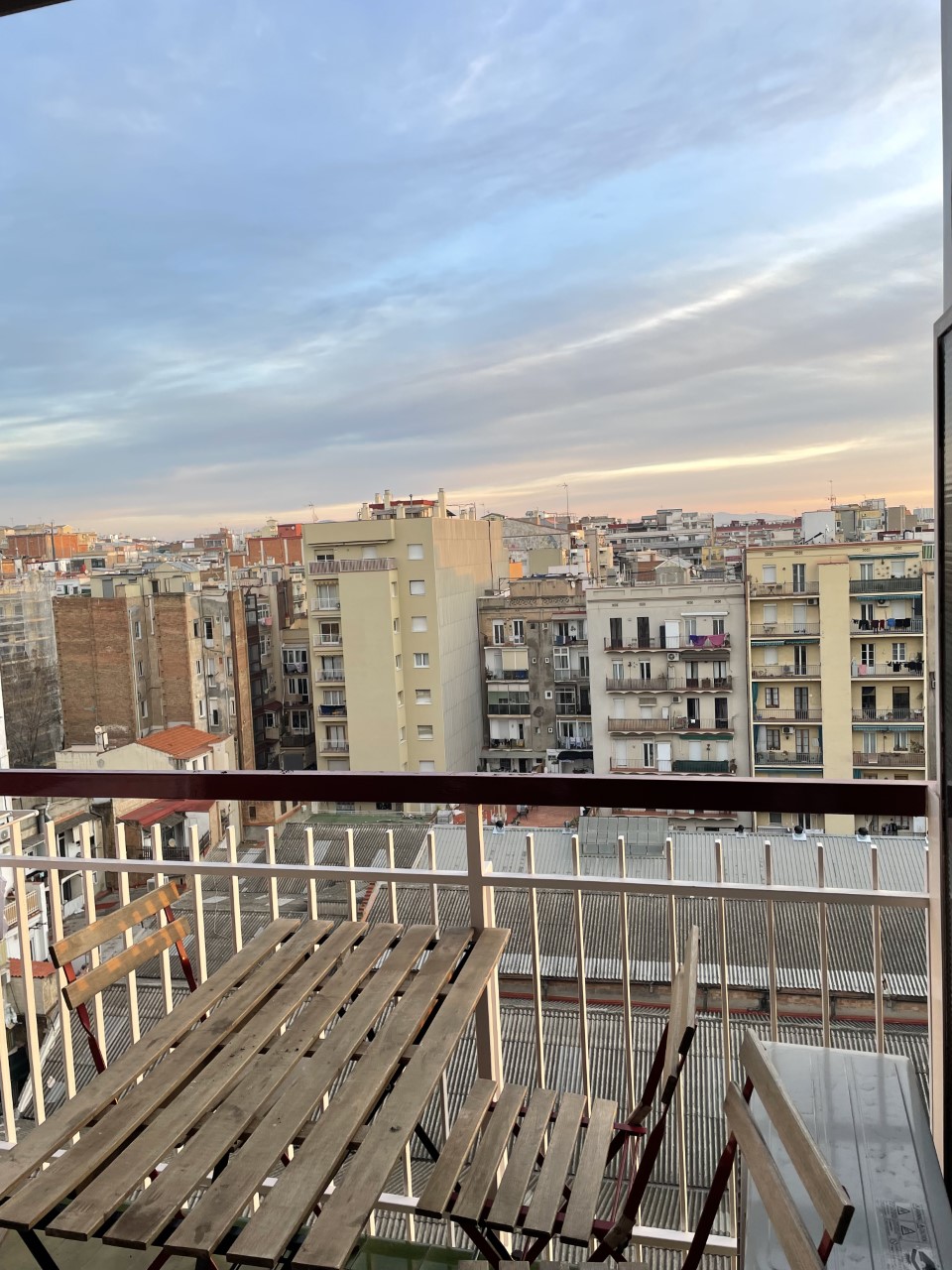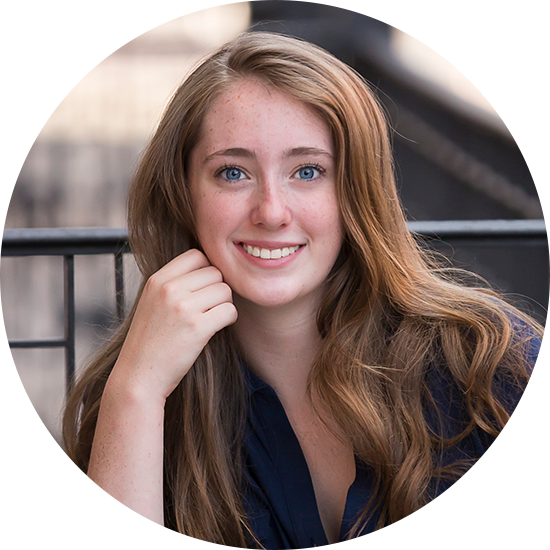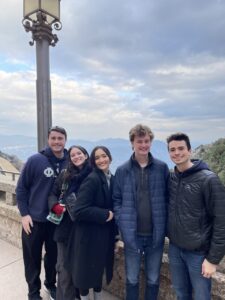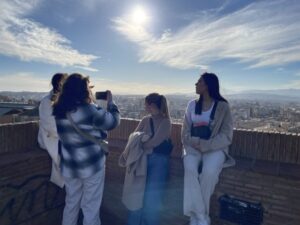The Little Things with Studying Abroad



Before coming to Barcelona, so many people warned me about culture shock. While studying abroad is an invaluable experience full of opportunity, you are also uprooting your entire life to move across the world for three months. As I was told, the stages of culture shock are the honeymoon phase, anxiety, adjustment, and acceptance. Based on how much I was warned about culture shock, I came into study abroad expecting it to have a significant impact on my experience. While I have felt the effects of culture shock, it is not all I expected it to be. Yes, the language is different and the culture is different, but it was the little things that felt like the hardest adjustment. That being said, it was also the little things that made the past three months so amazing.

In the months leading up to studying abroad in Barcelona, I mentally prepared for communicating in Spanish, eating dinner later, a slower pace of life, walking a lot more, and traveling much more than usual. Because of my excitement and preparing so intensely, I feel like the adjustment for these things actually went pretty smoothly. Of course, there was an adjustment period where I went out to dinner at 7:00pm and was the only person at the restaurant or I would walk 30,000 steps one day and be sore the next. [In the picture on the left, I was in Budapest, Hungary for the weekend and walked 30,132 steps and up 27 flights of stairs. It was 100% worth it, but definitely an adjustment.] It did help that IFSA created such a strong community for everyone in our program. I was not the only person irritated with slow walkers or confused by the signs. It helped significantly that I could lean on my new friends in the program when things were a little overwhelming. It was also during the first few weeks that I realized there is so much more to being abroad than I originally thought.
First, buying groceries took me about a month to figure out. What I was expecting was to not be able to read the signs and containers in the stores and maybe being tripped up by the cashier speaking Catalan or Spanish. What I was not expecting was Google Translate to also not understand the signs and labels. This was the first thing that was especially inconvenient. Most labels in stores and markets are Catalan, which I have no previous knowledge of. I grew up taking Spanish classes. This was unfortunate when I had to buy a hair conditioner. Google Translate says “hair conditioner” in Catalan is “condicionador de cabell” and not a single bottle said those words. I eventually settled on a bottle that said “crema suavitzant.” Another instance is when I tried to buy steak (looking for something along the lines of sirloin or t-bone) and the only piece of meat that looked like steak was called “mitjana” which translates to “average.” Not exactly what I was looking for. However, at that same carniceria (butcher), I became a regular and the ladies there helped me practice my Spanish. This was one of my favorite moments of being in Spain. Most of the time, when people realize you do not speak Spanish, they automatically switch to English. There are many times people rolled their eyes at me or refused to talk to me in Spanish. This makes sense, because it is easier for everyone, but then it becomes harder for to practice speaking in Spanish. These ladies did not do that. They encouraged me, gave me recommendations for different cheeses or types of meat, and were always incredibly patient with me.
Along the same lines as language, people speaking it did not throw me off as much as my phone only coming up with results in Spanish when I googled things or my computer and keyboard being in Spanish at my internship. On so many occasions, I had to put my Google search results into Google Translate. There may be a way to fix this, but I did not figure it out. This was the same at my internship. The work I did at my internship was understandable and was not hard to adjust to. It felt like an internship I might have at home, workwise. However, I found myself getting stuck on which buttons meant “copy,” “paste,” or “delete.” On my first day, I had to ask how to log out of the computer. The keyboard was also slightly different than an English keyboard. It was not confusing, but mildly inconvenient when some of the keys were in different places and I had to type slower. On the bright side, I have learned a lot of computer-related words in Spanish and became friends with the other people who worked at my internship.

One of my biggest challenges and favorite parts about being in Barcelona has been the public transportation. I am originally from Denver, Colorado, so I have not had much experience with public transportation in the past. It was a huge learning curve for me, but also made the city super accessible. Two of the first things I learned were you must wave the bus down or it will not stop for you and you have to press the red button on the bus to request it to stop when your stop is coming up. I was late to class on two occasions because I did not know these things and it was very stressful when I was ready to get off the bus and it just kept going. Once I had that figured out though, it was amazing. I could be at the beach or in the mountains in twenty minutes. The picture to the right is my view from the bus stop on the way to UPF.
When not taking public transportation, I also learned to love walking around the city. More than once, I accidently found a historic building, tourist attraction, or really cool café. I was walking to a museum for a class one time and accidentally found Casa Batllo, which is one of the top places to visit in Barcelona. I have loved all the things there are to do around the city and there is always something new and interesting around the corner. One of the most rewarding things is learning your way around and not having to use a maps app. It felt like a major accomplishment when I learned two routes to get to UPF and the IFSA Office and did not need to pull out my phone for directions every block. It felt even better when one of my friends came to visit from her study abroad program and I knew where to go without help. It feels like a huge step after being so overwhelmed the first few weeks. The picture to the left is in Parc Ciutadella, which I passed anytime I walked back to my apartment from UPF.
All of these things happened in the day-to-day life of living in Barcelona. This was outside the traveling, visiting places around the city, hanging out with my friends at local bars and restaurants, going to the beach (in the middle of February), trying new foods, and taking classes. There is a great study abroad community to lean on, numerous personal challenges and accomplishments, learning new things, and baffling at how beautiful Barcelona is. In the end, it’s the little things that make up your abroad experience and even the things that seem negative in the moment, end up being funny stories later on. These are the things that make up living in Barcelona that I did not hear about beforehand and some of the things I will miss the most when I leave.
Evalyn P. | Butler University I IFSA Barcelona Universities Program: UAB | Spring 2023 | IFSA Student Marketing Correspondent